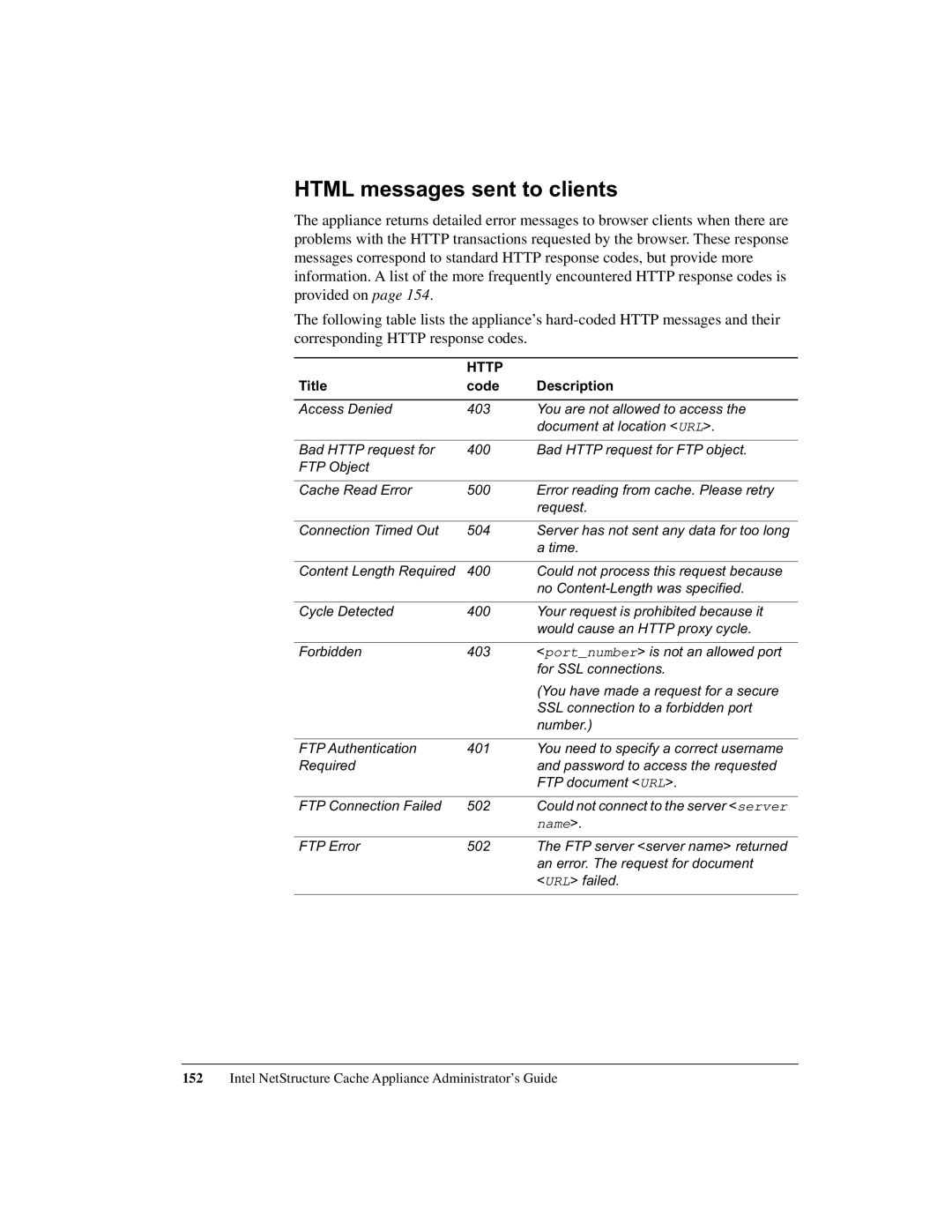
HTML messages sent to clients
The appliance returns detailed error messages to browser clients when there are problems with the HTTP transactions requested by the browser. These response messages correspond to standard HTTP response codes, but provide more information. A list of the more frequently encountered HTTP response codes is provided on page 154.
The following table lists the appliance’s
| HTTP |
|
Title | code | Description |
|
|
|
Access Denied | 403 | You are not allowed to access the |
|
| document at location <URL>. |
|
|
|
Bad HTTP request for | 400 | Bad HTTP request for FTP object. |
FTP Object |
|
|
|
|
|
Cache Read Error | 500 | Error reading from cache. Please retry |
|
| request. |
|
|
|
Connection Timed Out | 504 | Server has not sent any data for too long |
|
| a time. |
|
|
|
Content Length Required | 400 | Could not process this request because |
|
| no |
|
|
|
Cycle Detected | 400 | Your request is prohibited because it |
|
| would cause an HTTP proxy cycle. |
|
|
|
Forbidden | 403 | <port_number> is not an allowed port |
|
| for SSL connections. |
|
| (You have made a request for a secure |
|
| SSL connection to a forbidden port |
|
| number.) |
|
|
|
FTP Authentication | 401 | You need to specify a correct username |
Required |
| and password to access the requested |
|
| FTP document <URL>. |
|
|
|
FTP Connection Failed | 502 | Could not connect to the server <server |
|
| name>. |
|
|
|
FTP Error | 502 | The FTP server <server name> returned |
|
| an error. The request for document |
|
| <URL> failed. |
|
|
|
152Intel NetStructure Cache Appliance Administrator’s Guide
